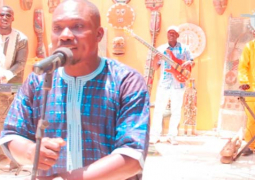More than one hundred participants drawn from the technical advisory committee, security personnel, local institutions, and traditional leaders recently gathered in Bansang for a two-day sensitisation programme on the concept of Alternative Dispute Resolution (ADR).
The programme was funded by the United Nations Development Programme (UNDP) Banjul Office.
Speaking at the opening ceremony, the governor of Central River Region Alhagie Ganyie Touray says no country can achieve and maintain peace and stability without a sound fair and responsive judicial justice system.
He noted that the ADR has a clear focus in mediation, negotiation, arbitration and reconciliation in solving dispute between people.
Governor Touray urged all and sundry to collaborate and give maximum support to the ADR, while commending the UNDP for providing strategic support to the initiative.
For his part, Dr Ebrima Lowe, chief executive secretary of the Alternative Dispute Resolution Secretariat (ADRS), stated that the secretariat is found on well perceived philosophy and ideals geared towards improving the lives of people, as a means of encouraging direct foreign investment.
According to Dr Lowe, the ADR concept has been a long traditional African affair, which makes integrating the concept in the mainstream judicial system in the interest of peace and stability a necessity.
The new drive - the ADR concept - is now gaining considerable momentum not only in Africa but the world over, he says.
"The court system is structured and designed to settle disputes through adjudication process in cultural setting completely alien to African ways of justice delivery system," he noted, adding that the ADRS has mechanisms in place to complement the more formal justice delivery system, which is plagued by numerous cases whose handling takes longer than normal with a great cost to litigants.
The forum was coordinated by Sallah Ndure, director of technical investigation, and Babucarr Fofana, CRR regional disaster management coordinator.


